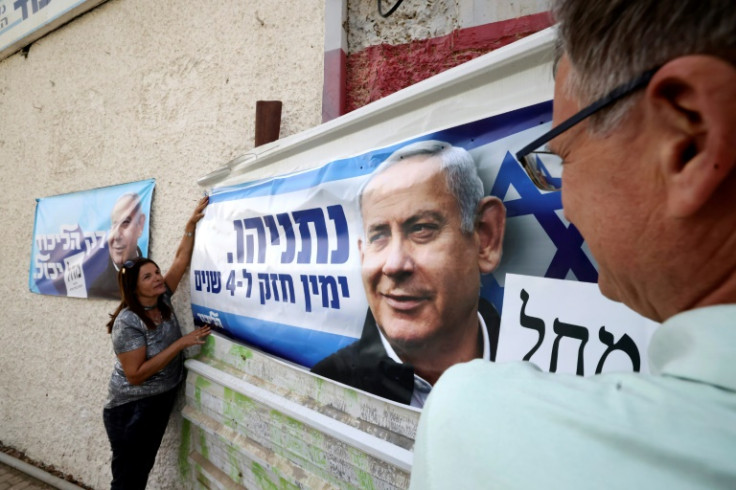Arab Voters Crucial To Breaking Deadlock In Israeli Elections

As Israelis prepare to head to the polls for the fifth time in less than four years, it is becoming clear that one demographic is the key to ending the political deadlock -- Arab Israelis.
Arab voters in Israel will play an important role in the Nov. 1 election, as they could have the power to decide whether former Israeli Prime Minister Benjamin Netanyahu can form a cohesive coalition.
Netanyahu was indicted on corruption charges in 2019, and the trial is ongoing. He faced fierce backlash for refusing to step down while under investigation before being ousted in June 2021, when a diverse eight-party alliance was created to remove him from office.
The coalition government was organized by Prime Minister Yair Lapid and was initially a success. However, it dissolved less than a year later due to infighting, and now the country faces another historic election that while determine the next course for Israel.
Arab-Israeli politicians were a part of the 2021 alliance and were instrumental in removing Netanyahu. But there is growing concern that Arab voters, while representing a minority of the larger Israeli population, will not vote in the upcoming election.
According to the Israel Central Bureau of Statistics, as of the end of 2021, Arabs make up 21.1% of the Israeli population, while Jews make up 73.9%. Many polls predict a historically low turnout among Arab voters, although the outgoing government included Arab parties for the first time in Israel's 74-year history.
Of Israel's 120 parliamentary seats, Arab party candidates are expected to snag only eight of them, with some polls indicating even lower numbers. Those figures starkly contrast with the 2021 election, when Arab parties claimed 15 seats, the most in history.
If Arab voters do not go to the polls on Tuesday, Netanyahu will have a more substantial chance of winning reelection with plans of further shifting Israel's political dial to the right. Israelis will be forced to vote again if a coalition government cannot be formed.
The ongoing Israeli political crisis started in 2019 and has caused instability as coalition governments either fail to form or fall apart during their term. During the last four elections, Netanyahu's political party has been just out of reach of the 61 seats needed to form a majority in the Keneset.
Recent polls estimate an Arab voter turnout of 40%, a historic low. Israel averages a 70% voter turnout. If the polls stay constant through election day on Nov. 1, it is possible that very few, if any, seats will be filled by Arab parties.
Major concerns for Arab voters are the increase in crime in Arab communities, the growing disparities between Israeli Jewish and Arab populations, and the rising tensions between Jewish and Palestinian communities. A lack of hope and trust in the political process are critical factors in the Arab population's hesitance to vote.
Arab politicians have been campaigning more aggressively in Arab neighborhoods, using billboards, and hosting chats with constituents to gain momentum and encourage people to vote.
© Copyright IBTimes 2024. All rights reserved.





















